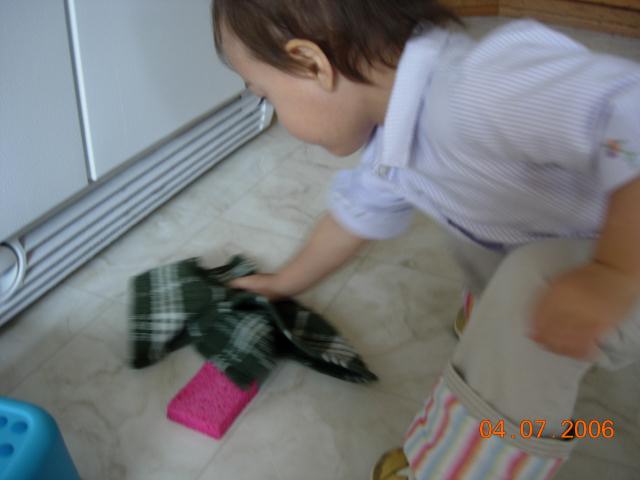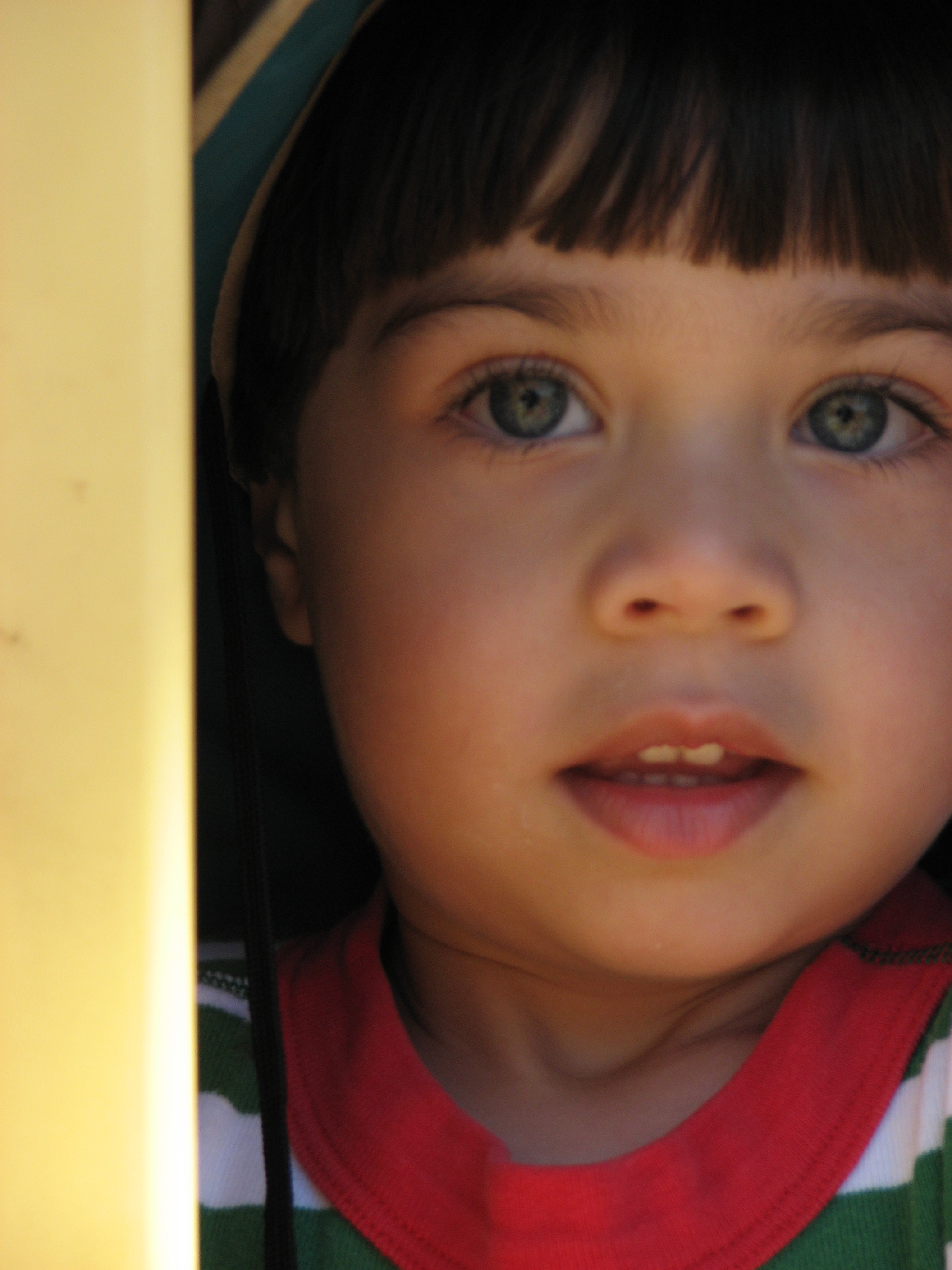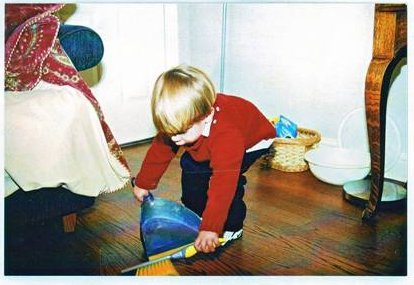This creates a positive cycle in which:
1) You notice some behaviors you don’t like.
2) Rather than focusing on those behaviors, you offer alternatives in the form of tasks, jobs, or responsibilities (careful here though, these must be tasks that would be nice to have done, but which are true requests- not demands).
How I averted a power struggle and created a game instead
After I learned to Go for the Giggle, I had an experience with a child in which I could see two distinct choices before me of how to handle a potential power struggle.
It was another afternoon with “Kyle”, six years old, and “Neil”, who was two. I was sitting in the playroom folding the family laundry.
Just as I had almost finished, and was stacking some of the folded laundry into the basket, Kyle ran over and knocked the basket over, spilling the newly folded laundry on to the floor.
Five Keys to Getting Kids to Help with Clean-up
Ever wonder why you can’t get your kids to help clean up?
I know, it seems like a nice idea and all, but how the heck do you actually get kids to want to and enjoy helping with clean up?
At first, I didn’t think it was possible either. But it turns out, I was grossly underestimating young people.
In fact, during my first year as a preschool teacher in a Montessori school, my limited ideas of the kids’ cleaning capabilities were completely blown out of the water!
I looked around the classroom and saw three-year-olds sweeping, mopping, dusting, and helping each other clean up messes!



